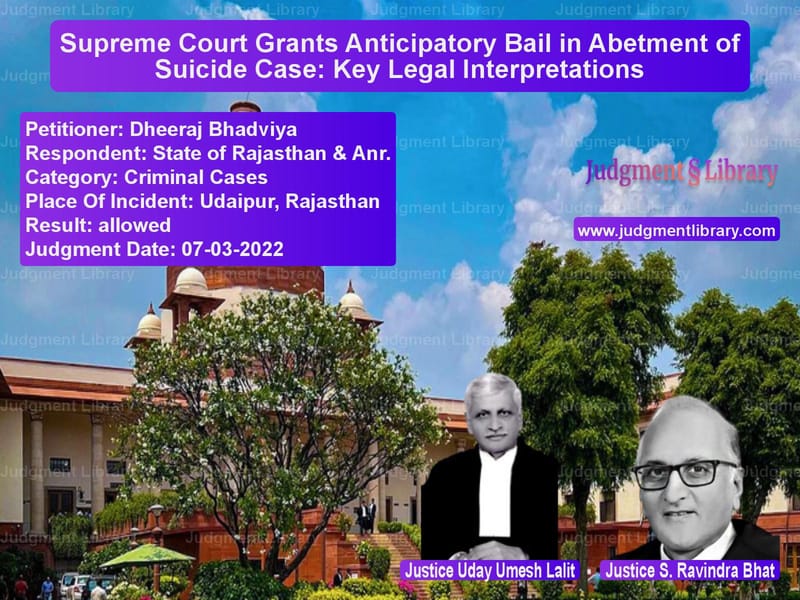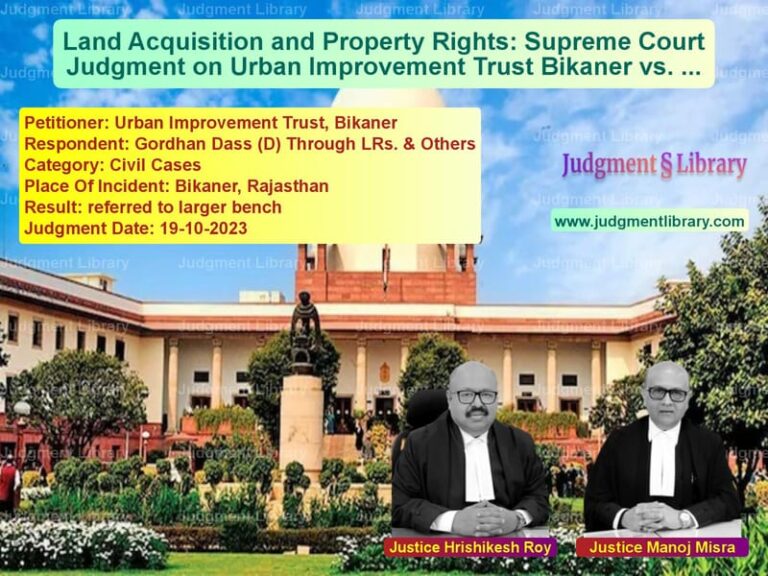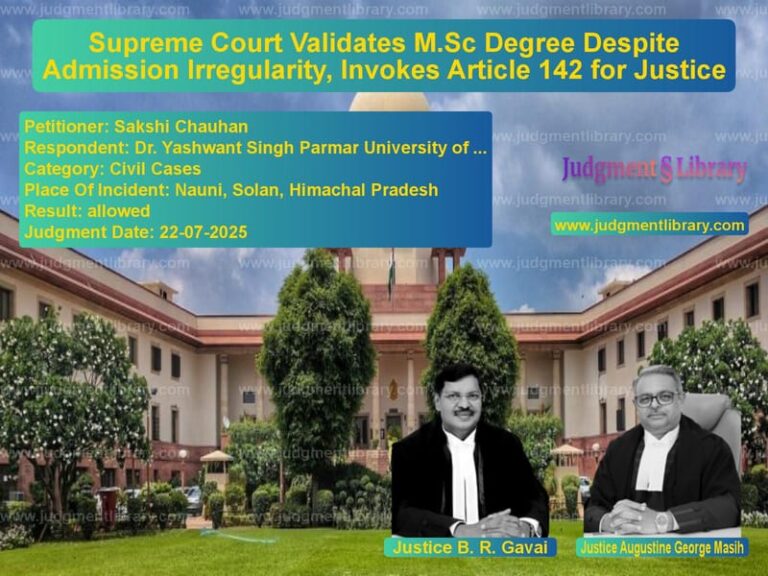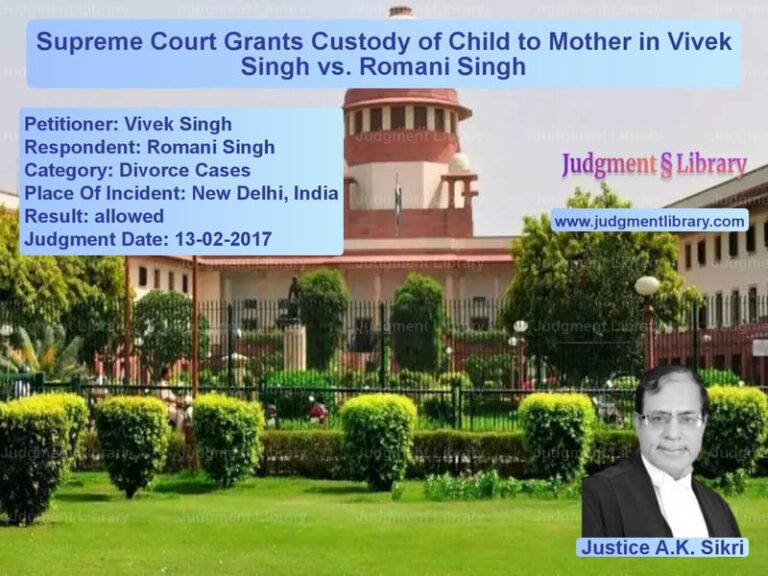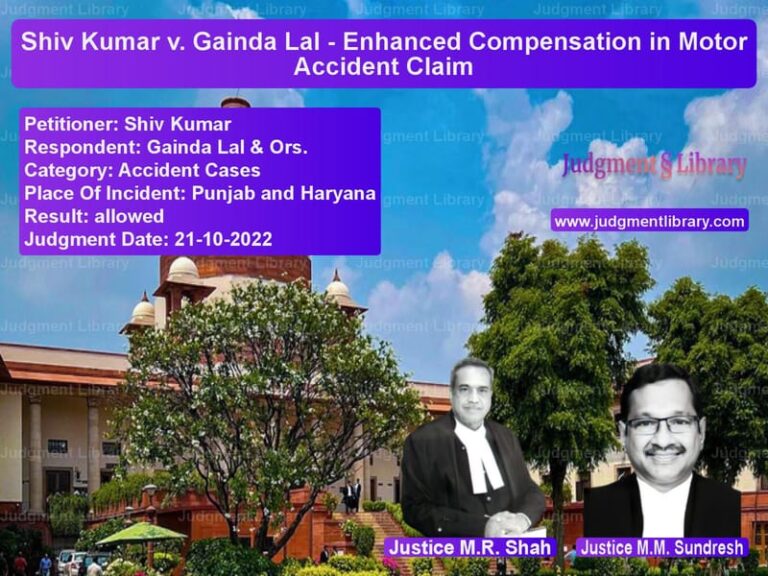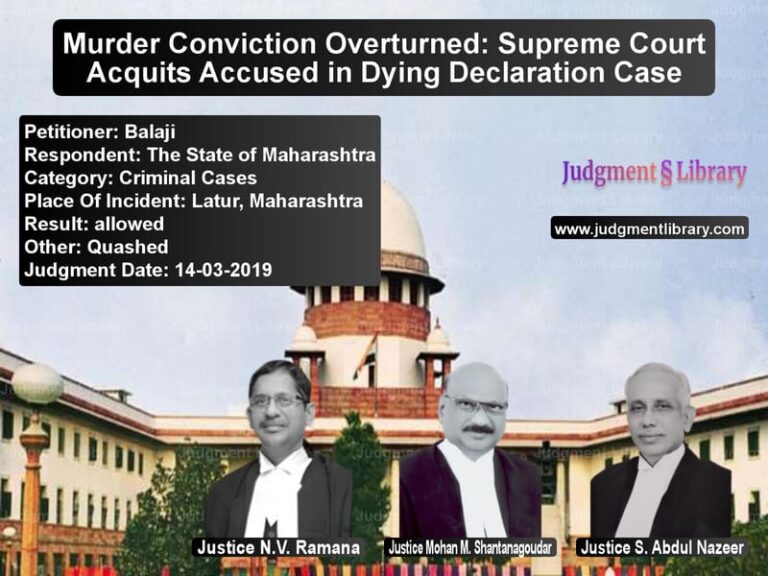Supreme Court Grants Anticipatory Bail in Abetment of Suicide Case: Key Legal Interpretations
The case of Dheeraj Bhadviya vs. State of Rajasthan & Anr. is a significant ruling by the Supreme Court concerning the grant of anticipatory bail in an abetment of suicide case under Section 306 of the Indian Penal Code (IPC). The judgment sheds light on the legal standards required for proving abetment and the considerations for granting anticipatory bail under Section 438 of the Code of Criminal Procedure (CrPC), 1973.
The case arose when an FIR was lodged against the appellant, Dheeraj Bhadviya, under Section 306 IPC. Apprehending arrest, the appellant moved for anticipatory bail, which was rejected by the High Court of Rajasthan. This led to the present appeal before the Supreme Court, where interim relief was granted, staying his arrest for 3.5 years. The Supreme Court, upon considering the facts and circumstances, eventually allowed the appeal, granting anticipatory bail with conditions.
Legal Context of Abetment Under Section 306 IPC
Section 306 IPC deals with the abetment of suicide, stating that if any person abets the commission of suicide, they shall be punished with imprisonment for a term which may extend to ten years and shall also be liable to a fine.
The Supreme Court has previously clarified that the mere fact of a person dying by suicide does not automatically make another person liable under Section 306 IPC. The prosecution must establish a direct link between the accused and the act of suicide, demonstrating instigation or active involvement.
Arguments Presented by the Petitioner
The petitioner, Dheeraj Bhadviya, through his legal counsel, put forth the following arguments:
- The FIR lodged against him was based on false allegations and was filed with ulterior motives.
- There was no direct evidence linking him to the act of suicide.
- The prosecution had failed to prove that he had instigated or provoked the deceased to commit suicide.
- Mere allegations in the FIR were not sufficient to establish a prima facie case under Section 306 IPC.
- The appellant had been protected from arrest by interim relief for 3.5 years, which indicated that immediate custody was not necessary.
- He was willing to cooperate with the investigation and adhere to any conditions imposed by the Court.
Arguments Presented by the Respondent
The State of Rajasthan, opposing the bail plea, argued that:
- The allegations against the appellant were grave and warranted custodial interrogation.
- The deceased had left behind substantial evidence, including possible suicide notes or circumstantial proof, suggesting the appellant’s involvement.
- Granting anticipatory bail could obstruct the ongoing investigation and may lead to the destruction of crucial evidence.
- The gravity of the offense required strict judicial scrutiny before granting any relief.
Supreme Court’s Observations and Decision
The Supreme Court, after analyzing the arguments, made several key observations:
- The appellant had already been protected by an interim order for 3.5 years, and during this time, no material evidence had emerged necessitating his arrest.
- The principles governing anticipatory bail required the Court to balance the rights of the accused and the necessity of custodial interrogation.
- The Court found that there was no prima facie evidence to establish a direct link between the appellant’s actions and the suicide.
Consequently, the Supreme Court set aside the High Court’s order and directed the following:
- If the appellant is arrested, the Arresting Officer shall release him on bail upon furnishing a cash security of Rs. 50,000/- with two like sureties.
- The appellant must cooperate with the investigation.
- He must appear before the Investigating Officer on March 14, 2022, at 11:00 AM and remain present from 11:00 AM to 5:00 PM for a week.
Judicial Precedents on Anticipatory Bail in Abetment Cases
The Supreme Court referred to several past judgments that shaped the jurisprudence on anticipatory bail in cases involving abetment of suicide:
- Gurcharan Singh v. State of Punjab (2020): The Court emphasized that abetment must involve a direct act of instigation or coercion.
- Madan Mohan Singh v. State of Gujarat (2010): Held that casual remarks or minor disputes do not constitute abetment.
- Arnesh Kumar v. State of Bihar (2014): Laid down guidelines restricting unnecessary arrests in cognizable offenses.
Based on these principles, the Court concluded that the appellant was entitled to relief.
Impact of the Judgment
The Supreme Court’s ruling underscores the necessity of proving a clear causal link between the accused’s actions and the victim’s suicide. This judgment is significant in preventing the misuse of Section 306 IPC, ensuring that individuals are not wrongfully implicated in cases lacking direct evidence.
Read also: https://judgmentlibrary.com/criminal-limitation-period-supreme-court-clarifies-computation-of-time/
Furthermore, the judgment reinforces the discretionary power of courts in granting anticipatory bail, emphasizing a balance between individual liberty and the need for effective investigation.
With these findings, the appeal was allowed, and the order of the High Court rejecting anticipatory bail was set aside.
Petitioner Name: Dheeraj Bhadviya.Respondent Name: State of Rajasthan & Anr..Judgment By: Justice Uday Umesh Lalit, Justice S. Ravindra Bhat.Place Of Incident: Udaipur, Rajasthan.Judgment Date: 07-03-2022.
Don’t miss out on the full details! Download the complete judgment in PDF format below and gain valuable insights instantly!
Download Judgment: dheeraj-bhadviya-vs-state-of-rajasthan-&-supreme-court-of-india-judgment-dated-07-03-2022.pdf
Directly Download Judgment: Directly download this Judgment
See all petitions in Bail and Anticipatory Bail
See all petitions in Judgment by Uday Umesh Lalit
See all petitions in Judgment by S Ravindra Bhat
See all petitions in allowed
See all petitions in supreme court of India judgments March 2022
See all petitions in 2022 judgments
See all posts in Criminal Cases Category
See all allowed petitions in Criminal Cases Category
See all Dismissed petitions in Criminal Cases Category
See all partially allowed petitions in Criminal Cases Category

